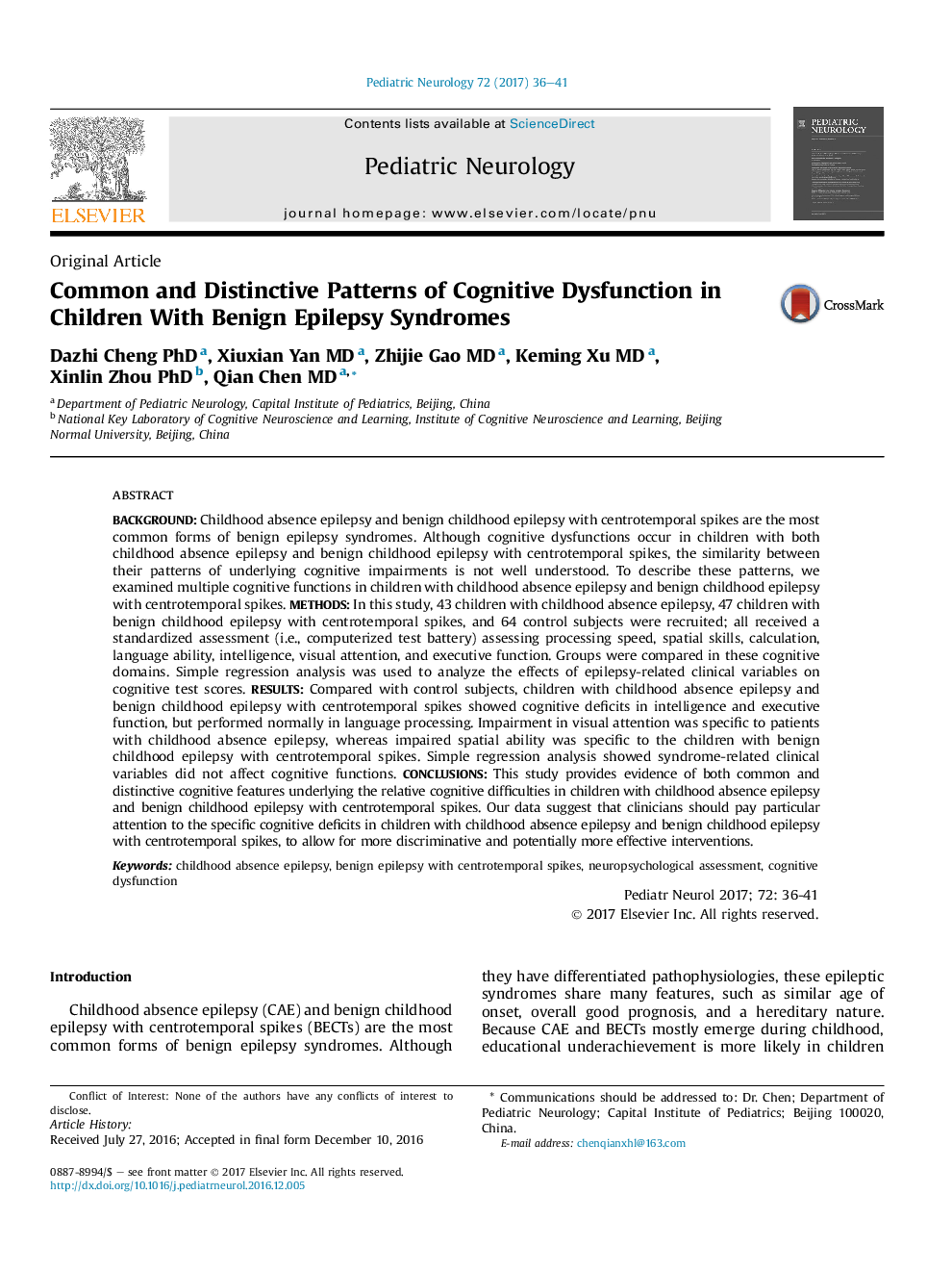| Article ID | Journal | Published Year | Pages | File Type |
|---|---|---|---|---|
| 5633093 | Pediatric Neurology | 2017 | 7 Pages |
BackgroundChildhood absence epilepsy and benign childhood epilepsy with centrotemporal spikes are the most common forms of benign epilepsy syndromes. Although cognitive dysfunctions occur in children with both childhood absence epilepsy and benign childhood epilepsy with centrotemporal spikes, the similarity between their patterns of underlying cognitive impairments is not well understood. To describe these patterns, we examined multiple cognitive functions in children with childhood absence epilepsy and benign childhood epilepsy with centrotemporal spikes.MethodsIn this study, 43 children with childhood absence epilepsy, 47 children with benign childhood epilepsy with centrotemporal spikes, and 64 control subjects were recruited; all received a standardized assessment (i.e., computerized test battery) assessing processing speed, spatial skills, calculation, language ability, intelligence, visual attention, and executive function. Groups were compared in these cognitive domains. Simple regression analysis was used to analyze the effects of epilepsy-related clinical variables on cognitive test scores.ResultsCompared with control subjects, children with childhood absence epilepsy and benign childhood epilepsy with centrotemporal spikes showed cognitive deficits in intelligence and executive function, but performed normally in language processing. Impairment in visual attention was specific to patients with childhood absence epilepsy, whereas impaired spatial ability was specific to the children with benign childhood epilepsy with centrotemporal spikes. Simple regression analysis showed syndrome-related clinical variables did not affect cognitive functions.ConclusionsThis study provides evidence of both common and distinctive cognitive features underlying the relative cognitive difficulties in children with childhood absence epilepsy and benign childhood epilepsy with centrotemporal spikes. Our data suggest that clinicians should pay particular attention to the specific cognitive deficits in children with childhood absence epilepsy and benign childhood epilepsy with centrotemporal spikes, to allow for more discriminative and potentially more effective interventions.
